 Should donating breast milk be as easy and as acceptable as donating blood?
Should donating breast milk be as easy and as acceptable as donating blood?
Is breast milk just like other bodily fluids and parts to be shared?
Does the idea of feeding your baby another woman’s breast milk make you squirm a bit? I suppose that would be a common reaction felt by most people in the modern world. But when you analyze that feeling, think about why it might feel more acceptable and preferable to feed a baby the milk from a cow, which is a different species altogether and whose milk is naturally designed to raise a baby calf into a 2,000 pound cow?

In light of the discussion and controversy over the very idea of sharing, donating, selling and buying breast milk for babies, I thought it would be timely to touch upon the subject. After all, what could be more natural and beneficial for babies than healthy human mother’s milk? But if it is not the mother’s own, then what?
Dr. Rhonda Shaw, a sociologist and professor who studies shared breast feeding in New Zealand, notes that Western objections to wet-nurses are cultural:
“The exchange of body fluids between different women and children, and the exposure of intimate bodily parts make some people uncomfortable. The hidden subtext of these debates has to do with perceptions of moral decency. Cultures with breast fetishes tend to conflate the sexual and erotic breast with the functional and lactating breast.“
According to a joint statement by the World Health Organization and UNICEF: “The best food for a baby who cannot be breastfed is milk expressed from the mother’s breast or from another healthy mother. The best food for any baby whose own mother’s milk is not available is the breastmilk of another healthy mother…Where it is not possible for the biological mother to breast feed, the first alternative, if available, should be the use of human milk from other sources. Human milk banks should be made available in appropriate situations.”
Even though the idea of sharing mother’s milk may make many people feel uncomfortable and squeamish, as surely it does, we need to reflect on the cultural context, the needs of mother and child and the realization that the lives of newborns can benefit greatly from it. Obviously, many other human bodily parts and fluids are also donated, transplanted and replaced. For women who choose breast milk over infant formula, as long as the breast milk is tested and screened and free of impurities, then why not?

 Alicia Silverstone, author-actress-activist-vegan, has proposed the Kind Mama Milk Share, a breast milk exchange for vegan mothers on her website, The Kind Life. Although Alicia Silverstone’s offer to bring together lactating mothers and babies who need breast milk has made headlines and TV news, the idea is as old as pre-Biblical times and is not all that shocking, after all. For women who aren’t able to breastfeed their babies or who can’t produce enough milk, this offers an opportunity for them to connect with mothers who are willing to donate their oversupply. The Today Show, covered the story, with a tentative tone, saying that it could help many new, needy moms but it comes with some risks.
Alicia Silverstone, author-actress-activist-vegan, has proposed the Kind Mama Milk Share, a breast milk exchange for vegan mothers on her website, The Kind Life. Although Alicia Silverstone’s offer to bring together lactating mothers and babies who need breast milk has made headlines and TV news, the idea is as old as pre-Biblical times and is not all that shocking, after all. For women who aren’t able to breastfeed their babies or who can’t produce enough milk, this offers an opportunity for them to connect with mothers who are willing to donate their oversupply. The Today Show, covered the story, with a tentative tone, saying that it could help many new, needy moms but it comes with some risks.
http://www.youtube.com/watch?v=nD8oEPbaHkI
Alicia Silverstone, never the one to shy away from controversy, puts out the word in her blog….
“I say we help support those mamas and babies who need a hand during one of the most important times in their lives. It’s why I’m starting the Kind Mama Milk Share, a way for moms to connect with other moms in their area. If you have milk to share–post it! If you are in need of milk–post it! Think of all the babies we can help raise together!”
 Milk-sharing, as strange as it may sound to many people, is an ancient practice. Since manufactured infant formula was only developed in the early 1900’s, “milk sharing” was not uncommon in pre-Biblical times through to the 20th century, cutting across all cultures. Even though it may be difficult to imagine life before baby formula, in the thousands of years before formula was developed, a newborn could hardly survive without mother’s milk, let alone thrive. There were myriad reasons a woman might use a “wet-nurse” or another woman to nurse her child: serious or chronic illness of the mother, the mother’s desire to become pregnant again quickly, impoverished women trying to hide the birth of their illegitimate child, socially higher-class women or royalty using slaves or servants as wet-nurses., and the list goes on.
Milk-sharing, as strange as it may sound to many people, is an ancient practice. Since manufactured infant formula was only developed in the early 1900’s, “milk sharing” was not uncommon in pre-Biblical times through to the 20th century, cutting across all cultures. Even though it may be difficult to imagine life before baby formula, in the thousands of years before formula was developed, a newborn could hardly survive without mother’s milk, let alone thrive. There were myriad reasons a woman might use a “wet-nurse” or another woman to nurse her child: serious or chronic illness of the mother, the mother’s desire to become pregnant again quickly, impoverished women trying to hide the birth of their illegitimate child, socially higher-class women or royalty using slaves or servants as wet-nurses., and the list goes on.

According to Wikipedia, “following the widespread marketing and availability of artificial baby milk, or infant formula, wet nursing went into decline after World War II and fell out of style in the affluence of the mid-1950s. Wet nurses are no longer considered necessary in developed nations and, therefore, are no longer common… The act of nursing a baby other than one’s own often provokes cultural squeamishness…When a mother is unable to nurse her own infant, an acceptable mediated substitute is screened, pasteurized, expressed milk (or especially colostrum) donated to milk banks analogous to blood banks, a sort of bureaucratic wet-nurse”.
 Some advice from Parenting.com about milk sharing…
Some advice from Parenting.com about milk sharing…
Donate to a bank
If you want to gift your milk, contact the Human Milk Banking Association of North America (hmbana.org) to find a milk bank near you. You and your milk will be screened to ensure safe sharing.
Insist on testing
If you can’t get a prescription for a regulated milk bank, you can find donors at milkshare.com. Be sure the donor lives healthfully and is tested for HIV, hepatitis, herpes, syphilis, tuberculosis, cytomegalovirus, strep, and staph. Never buy milk online — you can’t know if it’s safe.
Compare birthdays
When milk sharing, remember that a mom’s milk changes over time to match her baby’s needs, so it will be best for infants close in age.
Elizabeth Currid-Halkett, associate professor of Public Policy at the University of Southern California, wrote a wonderful and informative Op-Ed piece in the New York Times about the myriad benefits of breast feeding and her stance against company’s profiting from the business of selling breast milk. She discusses how many lactating mothers produce an oversupply of milk and how beneficial it would be to be able to easily donate the extra to milk banks to help other mothers and fathers who want and need to feed their babies.
Companies like Prolacta and Medolac are in the lucrative business of buying breast milk from lactating mothers for $1 an ounce. They then concentrate it, fortify it and sells it to hospitals for as much as $180 per ounce for very premature babies. Surely, these companies are providing a needed service, but a very expensive price.
What is your opinion about this highly charged topic? Vegan American Princess wants to know!
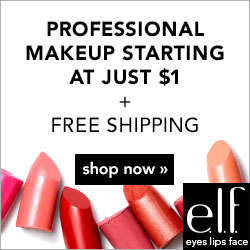
@elizabethcurridhalkett @nytimes @aliciasilverstone @thekindlife #breastfeeding #donatingbreastmilk #humanmilkbanks
Buying Veggies In Bulk at Costco and 8 Recipes to Use Them All!
20 Ways to Go Plant-Based for Less $
Freeze Dried Fruit: The Astronauts Are Right!
Gardenburger’s Malibu Vegan Burger on a Coco Lite!
Fabulous Stuffed Red Pepper Recipe
Easy & Delicious: Gardein Chick’n Piccata
Test Test of 3 Gardein Entrees plus Ellen’s Quick & Easy BBQ Sauce
Carrageenan: Why Is It in My Almond Milk and DIY Moo-Less Milks
xox Ellen
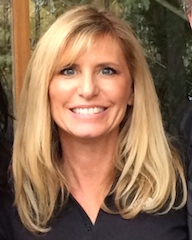
Ellen Francis

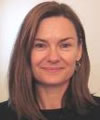

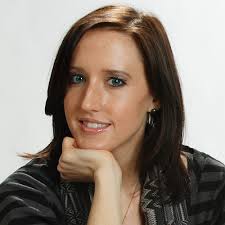






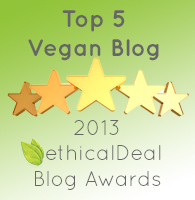
Wow! Alicia is certainly reinventing the cultural norm in our country! It’s been done in cultures all over the world forever, and the World Health Organization says it’s the next best thing than the mom’s own milk..so I say “Good for Alicia!” Very informative post!